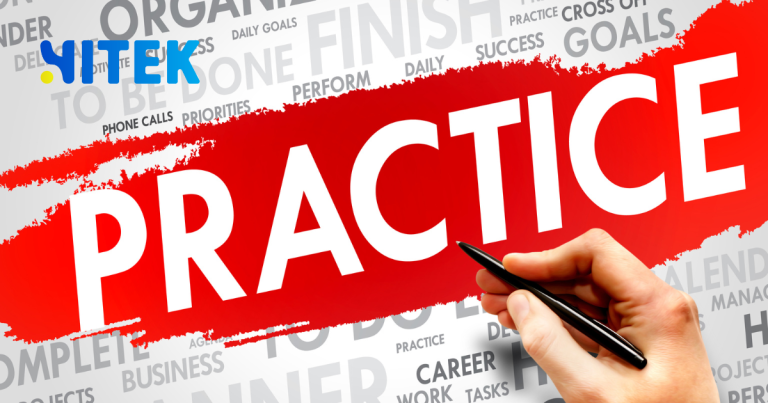Software development is one of Australia’s most in-demand and rewarding career paths. With the tech industry booming and companies across sectors seeking skilled developers, there’s never been a better time to explore this field. Whether you’re a recent graduate, a career changer, or simply curious about coding, this guide will walk you through everything you need to know to break into software development in Australia.
Contents
ToggleWhy Choose Software Development?
The Australian tech industry is thriving, with cities like Sydney, Melbourne, and Brisbane becoming hubs for innovation. According to the Australian Government’s Labour Market Insights, software and applications programmers are among the top occupations with strong future growth. The rise of digital transformation, cloud computing, and artificial intelligence drives the demand for developers.
Beyond job security, software development offers flexibility, competitive salaries, and the chance to work on projects that shape the future. The possibilities are endless, whether you’re building apps, designing websites, or creating AI algorithms.
Steps to Start Your Software Development Journey
1. Understand the Basics of Software Development
Before diving in, it’s essential to understand what software development entails. At its core, it’s the process of designing, coding, testing, and maintaining software applications. Developers use programming languages like Python, JavaScript, and Java to create everything from mobile apps to enterprise systems.
If you’re new to coding, start with free online resources like freeCodeCamp or Codecademy. These platforms offer beginner-friendly tutorials to help you grasp the fundamentals.
2. Choose a Specialization
Software development is a broad field, and choosing a niche can help you focus your efforts. Here are some popular areas to consider:
| Specialization | Description |
|---|---|
| Web Development | Building websites and web applications using HTML, CSS, and JavaScript. |
| Mobile App Development | Creating apps for iOS and Android using Swift, Kotlin, or React Native. |
| Data Science | Analyzing and interpreting complex data with Python, R, or SQL. |
| DevOps | Bridging development and operations to streamline software delivery. |
| Game Development | Designing and coding video games using engines like Unity or Unreal Engine. |
Think about your interests and career goals when selecting a specialization. For example, data science might be a great fit if you love problem-solving. If you’re creative, consider game or web development.
3. Learn the Right Programming Languages
The programming languages you learn will depend on your chosen specialization. Here’s a quick guide:
- Python: Ideal for beginners, data science, and backend development.
- JavaScript: Essential for web development and frontend design.
- Java: Widely used in enterprise applications and Android development.
- C#: Popular for game development and Windows applications.
Platforms like Udemy and Coursera offer affordable courses to help you master these languages.
4. Build a Portfolio
Employers in Australia value practical experience, so building a portfolio is crucial. Start by working on small projects like a personal website, a to-do list app, or a data analysis project. Showcase your work on platforms like GitHub to demonstrate your skills to potential employers.
If you’re unsure where to start, consider contributing to open-source projects. This will enhance your portfolio and help you connect with other developers.
5. Get Certified
While a degree in computer science can be beneficial, it’s not the only path into software development. Many Australian employers value certifications from reputable organizations. For example:
- AWS Certified Developer: For cloud-based development.
- Google Associate Android Developer: For mobile app development.
- Microsoft Certified: Azure Developer Associate: For Azure-based solutions.
Certifications can give you a competitive edge and validate your expertise.
6. Network and Join the Tech Community
Networking is key to landing your first job in software development. Attend your area’s meetups, hackathons, and conferences to connect with industry professionals. Platforms like Meetup and Eventbrite often list tech events in Australian cities.
Joining online communities like Stack Overflow or Reddit’s r/learnprogramming can also provide valuable support and advice.
7. Apply for Jobs and Internships
Once you’ve built your skills and portfolio, apply for entry-level positions or internships. Websites like Seek and LinkedIn are great places to find job listings in Australia.
Don’t be discouraged if you don’t land your dream job immediately. Many developers start in junior roles and work their way up.
Tips for Success in the Australian Tech Industry
- Stay Updated: The tech industry evolves rapidly, so continuous learning is essential. Follow blogs like TechCrunch and Smashing Magazine to stay informed.
- Practice Problem-Solving: Coding challenges on LeetCode and HackerRank can sharpen your skills.
- Seek Mentorship: Finding a mentor can provide guidance and help you navigate your career.
Final Thoughts
Breaking into software development in Australia is an exciting journey that requires dedication, curiosity, and a willingness to learn. By following the steps outlined in this guide, you’ll be well on your way to building a successful career in tech.
Ready to take the first step? Start learning a programming language today and join the vibrant Australian tech community. The future is yours to code!
Do you have questions or need further advice? Please share your thoughts in the comments below or connect with us. Let’s build the future together!









